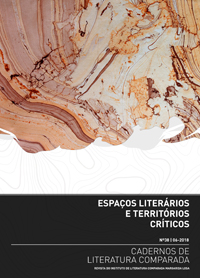“Estes povos pastoris”: entre a aldeia de Vilarinho da Furna e a literatura de Miguel Torga
DOI:
https://doi.org/10.21747/21832242/litcomp38a14Keywords:
Vilarinho da Furna, Miguel Torga, topophilia, referentiality, imaginaryAbstract
The village of Vilarinho da Furna, located in the extreme North of Portugal, was one of the last remaining communitarian villages in the country (in terms of its concentrated democratic structure and its sharing of property and land), which acted as a symbol of the pure values and origins of centuries-old Iberian communities. The considerable cultural and ethnographic interest towards this settlement intensified as the process of submerging the village (1969-1972) was orchestrated by the dictatorial regime of the time.
In this regard, from a geocritical point of view it is extremely productive to consider Vilarinho through the literature of Miguel Torga (1907-1995), a writer known for evoking geographical spaces and rural communities. Several of Torga’s texts from his Diários reflect, as well as contribute towards, feelings of affection and topophilia towards the community of Vilarinho da Furna and its natural surroundings, based on the harmonious behaviour of the villagers and the symbolic value of the settlement. In addition, the short story “Barragem” (1951) transforms the real space of that village into a literary imaginary, by oscillating between a fictional representation and the real geographical referent. Finally, it can be argued that the literature of Torga about the village has, to a certain degree, influenced the actual geographical space of the former community as well as the cultural perceptions and collective memory of the space in question.


